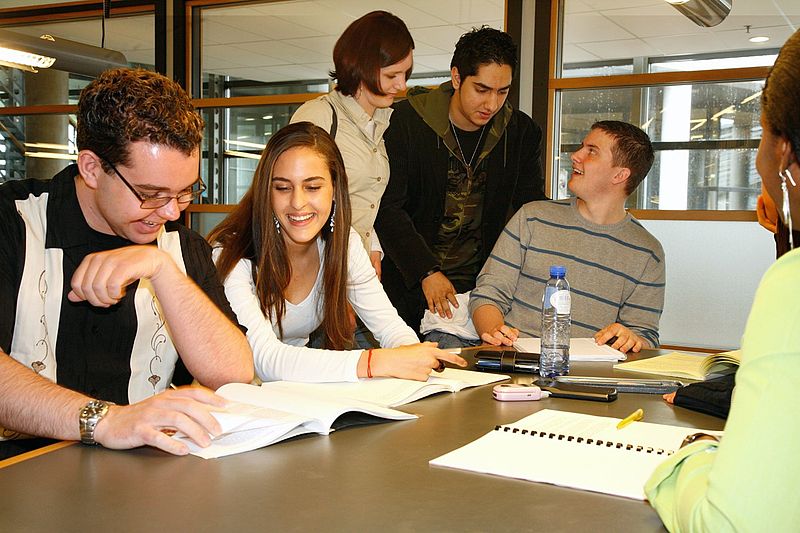A Note about Study Groups
 Informal study groups are a form of cooperative learning. Many students find it helpful to organize in small groups of classmates to review class materials and study for quizzes and exams. These groups are somewhat different from formal cooperative learning groups in that the members can come and go as they like. As with any group, difficulties can occur. The following are tips for forming study groups and studying and learning in groups.
Informal study groups are a form of cooperative learning. Many students find it helpful to organize in small groups of classmates to review class materials and study for quizzes and exams. These groups are somewhat different from formal cooperative learning groups in that the members can come and go as they like. As with any group, difficulties can occur. The following are tips for forming study groups and studying and learning in groups.
How to Form a Study Group
- Ask a few classmates to join you in reviewing and discussing lecture notes or readings.
- If your class is "too large" and you don't know anyone, ask a student next to you if he or she understands the material and would be willing to study with you.
- Select peers who might have similar class or work schedules.
- Ask the professor or teaching assistant (TA) to suggest a person or two whom you can contact. Don't be shy or nervous about making a connection with someone new. You can always establish your first contact via a "get acquainted," non-threatening e-mail message. Use Penn State's e-mail directory to find the person's e-mail address.
- Check to see if a study group currently exists within the academic department in which your course is offered.
- Visit the University Learning Center to find out if supplemental instruction is offered for your course or ask your professor.
- Check within student organizations such as service or academic societies or honors clubs to see if study groups exist.
How to Study and Learn in Groups
- Establish mutually agreed upon meeting times.
- Encourage group members to come prepared.
- Create goals for each session and keep your group on track.
- Meet in a place that works best for your group members. For some, this place could be an empty classroom or a study lounge in the dorm. Others might prefer a local coffeehouse, social area in the library, or the student union building. Wherever you choose to meet, make this location your regular meeting place and be sure to set a regular meeting time.
- Take turns facilitating or leading the study group session.
- Maintain a friendly exchange of information. Remember, it's okay if someone doesn't have an answer. Allow for some wait time between questions, or work through the material together.
- Establish guidelines to maintain focus on the subject matter. Allow yourselves ten minutes in the beginning of your session for casual discussion. After those ten minutes, the facilitator for that session must get the group on task.
Collaborative Advice
- Focus, Focus, Focus!
- Don't make your group too large. There is no set number for how many you should have in your group. However, we encourage you to start off small. If you can adhere to your group goals, you may want to increase your number. Keep your group size manageable!
- Don't complain or bad-mouth the professor, TA, etc.
- Do what you can do to help each other learn the material.


